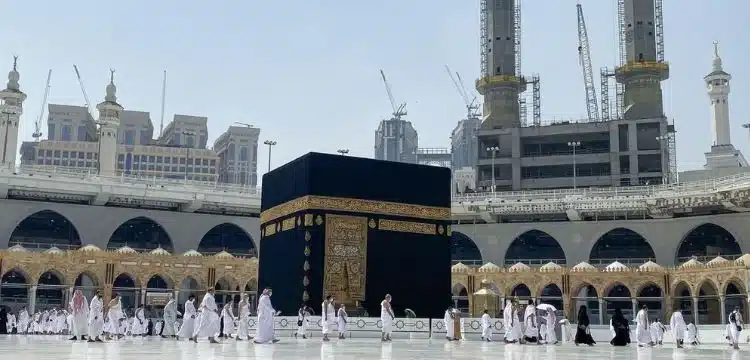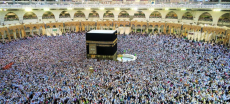[vc_row][vc_column][vc_column_text dp_text_size=”size-4″]The Saudi Arabian government has implemented a ban on children’s strollers in the circumambulating area of the Holy Kaaba, known as Mataf. This directive, recently announced by the General Authority for the Care of the Affairs of the Grand Mosque and the Prophet’s Mosque, outlines a new policy regulating the presence of children’s strollers within these sacred premises.
According to the authority’s statement, children’s strollers are no longer allowed on the ground floor of Mataf. Instead, specific areas within the Grand Mosque in Makkah have been designated where the use of strollers is permitted, notably on the upper floors of Mataf. Furthermore, it has been explicitly stated that access to Mas’a, the area between Safa and Marwa, remains permissible for strollers through the King Fahd Expansion Area. However, during crowded conditions on the floors of Mataf and Mas’a, entry with strollers is prohibited.
Read more : Saudi Arabia Permits Wedding Ceremonies At Grand Mosque, Masjid Nabawi
This decision is part of a series of precautionary measures undertaken by Saudi Arabian authorities, particularly due to the high congestion experienced in the Mataf area, especially during significant events such as Hajj and the holy month of Ramadan. The government is currently in the process of finalizing arrangements for the upcoming Hajj pilgrimage and has entered into Hajj agreements with various countries, including Pakistan.
Anticipating around 2 million pilgrims from across the globe for the upcoming Hajj scheduled for June this year, authorities have been implementing measures to enhance safety and ease the flow of worshippers in the Holy Kaaba’s vicinity.
In an earlier directive, authorities hinted at the potential division of Masjid al-Haram into coded zones. An agreement has been signed between the General Authority for the Care of the Two Holy Mosques and the Saudi Postal and Logistics Company to explore the feasibility of this division. The zoning initiative aims to precisely identify geographical locations, guide pilgrims within the Grand Mosque, and facilitate the allocation of human resources effectively.
The Grand Mosque in Mecca, housing the Holy Kaaba, holds immense significance for millions of Muslims worldwide, attracting worshippers to offer prayers, perform Umrah, and participate in the annual Hajj pilgrimage. Last year, despite the challenges posed by the pandemic, the kingdom welcomed around 2 million pilgrims for Hajj and over 13 million for Umrah. Social distancing protocols, previously in place, were lifted as the kingdom gradually restored normalcy in the wake of the pandemic’s impact on global travel.[/vc_column_text][/vc_column][/vc_row]











